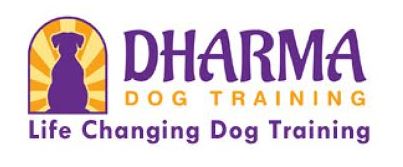- Do you subscribe to Dharma Dog Training’s Newsletter? You should.
- A Unique Campaign from The Humane Society of the United States
- Rabid bats in Omaha- Stay safe, prepared with these tips
- Springtime Activities in Omaha
- Mill Dog Monthly from Bailing Out Benji
- World Spay Day, Legislative Alert in Nebraska
- Attend the Nebraska Rescue Council’s monthly meeting this Saturday
- Five Hard-to-Ignore Reasons to Adopt!
- Paws in Pink to Benefit Breast Cancer Foundation
- VCA, Inc. Acquires MidWest Vet Specialists from Kansas State University
Preventing the Rising Number of Pet Surrenders

Kelley McAtee, dog trainer, behavior specialist and owner of Dharma Dog Training, is concerned about the number of animals surrendered at shelters. Animals are given to shelters and put through that difficult experience because, many times, owners don’t know how to or don’t attempt to change their pet’s behavior. Changing behavior and keeping your pet isn’t the most difficult thing to do; in fact, it’s much easier than putting an animal through the surrender and re-homing process.
We’re happy to have Kelley aboard as a partner at Pets in Omaha and encourage all pet owners to read her advice below. The last thing you should do in response to a negative behavior in your pet is surrender.
. . .
“I don’t think I can keep this dog.”
Have you ever had this thought or said these words? We know all too well that many of our clients are struggling with this situation. I myself have been through the same thing with my own rescue dogs that came with many serious behavior issues. Often times, the dogs have begun acting out in such serious ways it makes you question your ability as a dog owner. You wonder if your dog is happy in his new home. You wonder if issues can be fixed. You question whether you have the time or energy needed to help with the problems.
When I myself uttered those words about my dog, Barry, to a very wise friend, she said back to me, “If you give up on him you will regret it forever.” I definitely questioned her sanity at the time, because Barry was tearing up things at my house, peeing all over the place, growling and trying to attack dogs and people on the street and dog park, not listening to anything I said, howling and barking and disrupting my neighbors when I was gone, on and on. In the end, though, she was right! Most often, we don’t get the dog we want, we get the dog we need. Barry was the dog that pushed me to be a better dog owner, a better dog trainer and better person. Through him, I learned new things about myself. Barry pushed me to search out non-conventional tools to help him when purely positive techniques were not working. If it was not for him and all my other dogs, who I consider my best teachers, I would not be able to help the hundreds of dogs I do today.
The number one reason pets are relinquished to our shelters and rescues every year is behavior issues. Obviously, the key to preventing a surrender is to proactively take the steps to a prevent behavior problems. Often times with rescue dogs, we are the ones trying to put the pieces back together as the problem was created elsewhere. It is then our job to get this dog back into balance and into a peaceful state. Often times, these dogs come with much baggage after being bounced around from place to place, shelters, foster homes, etc. So you can imagine they have developed issues surrounding that instability. Just think about what the right tools and time, patience and consistency will do for these dogs and what you will learn about yourself in the meantime!
Usually, when we bring a new dog into our home, our idea of how we want to live with him or her (we want them to fit right in and understand what is expected of them and live happily ever after) is usually not what we get, at least not right away. We will do our dogs a disservice if we only shower our new dogs with love and affection and forget to set rules and boundaries for them. Of course, it is natural to feel bad for dogs that have had bad experiences, but by showing them a new way of life, this is a gift you are giving to them and you no longer need to feel bad for them.
Like children, dogs need rules and boundaries; and even though they might not enjoy or understand them, they still need them. When kids or dogs push boundaries, they can feel anxious or insecure because there is no protection within those boundaries. Pretend you were sitting down to play a board game and no one explained the rules to you. Most likely, you would make a lot of mistakes and become confused, frustrated and even angry. The people you were playing the game with would probably have similar feelings. This is a good way to think about why we must explain “the rules of the game” fairly to dogs and children so they understand what is expected of them and do not feel the need to push boundaries and test limits in order to find out the new house rules.
We recommend that new dogs coming into the household be on leash, attached to you for the first four weeks. The same goes for a new puppy. This is also part of our training plan for dogs that need rehabilitation after they’ve been allowed too much freedom in a household. Many times, people do not understand how that is realistic, but if you teach your dog to be “calm on command,” such as a “place command” so they can relax, you do not always have to be moving around with them. This also keeps the dog from wandering around getting into trouble. Your dog will also learn how to relax, which is something that most dogs struggle with. This typically doesn’t come naturally to them, so it’s our job to show them how.
Another very important life skill to teach your dog is kennel training. In our training plans, we transfer the place command into the kennel, so your dog has the mental capability to deal with it. Dogs are den creatures by nature, so it can serve as a safe place for them to retreat from the world and also keep them from getting into trouble when you cannot watch them. Many people phase out the kennel when/if their dogs are doing well, but then your dog will lose this very important life skill. Don’t do it.
An important part in keeping your dog balanced is mental and physical exercise. Mental exercises are running your dogs through basic commands and holding commands for long periods. This is like teaching your child to read and write and gives them self-confidence. The physical exercise we recommend is a daily structured and walk your dog is following you (heeling behind you) rather than leading you so that he can start to feel safe and secure in the world. We are also big fans of treadmill training during the extremely cold winter months and hot summer months to keep your dogs in a balanced state of mind and out of trouble.
Many people think that allowing their dogs to run free in their yard or their house is enough exercise, but imagine if I said, “you can only exercise in your house and your yard, and you only get to leave on special occasions.” I’m guessing you would start to go stir crazy and then when you did get out of the house, you would be so excited you wouldn’t know how to deal with it. That is why daily walks are so important. Dogs are migratory creatures and are used to traveling long distances in the wild.
I get asked a lot if my dogs are allowed free time. Of course there is! There should be time for play and free time allotted in your dogs day. My dogs always get a good balance of exercise, training, kenneling and playtime. But playtime does not need to be a free-for-all and can include learning. You can train while you play. Have your dog practice impulse control during playtime. Try dropping toys in the middle of tug, chasing and retrieving a ball but patiently sitting and waiting for you to throw it, etc. Make rules a part of your games and the opportunities for teaching while you are playing are endless. Then, training doesn’t feel like work for either of you!
Remember- training is a way of life, not just something you set aside to do for a few hours a day. We try to keep everything in balance to keep behavior problems from emerging. If after reading this article you now realize that you have given your dogs too much freedom and they have developed behavior problems, THAT’S OK! The first step to correcting the behavior problems is admitting there is a problem. The second step is to be ready and committed to make some changes in your household. Thirdly, find the right help for you and your family if you realize the problems are beyond your knowledge or scope.
There is a lot of information available online, and with so much conflicting information available, it can become confusing. Sometimes after trying different approaches with no successful results, people can get frustrated and often give up. Finding professional help for you and your family is an important task because you will be building a relationship. You want to make sure it is a good fit. You also want to make sure the dog trainer you hire has the experience to help with the problems you are having. When you begin looking for the right trainer for you and your family, there is a link on our website with some tips to help guide you.
Always keep this in mind- If you are thinking of re-homing or surrendering your dog because of behavior problems, try fixing the behavior. As you’ve found, when left unaddressed, they are most likely going to get worse. At Dharma Dog Training, we are working hard to educate and empower dog owners and let you know you are not alone. Your current situation with your dog can change for the better and there is help out there! You have options other than relinquishing your pet, and the best place for your dog to get the help they need is with you!
Barry and I worked through his issues and he is now a calm and balanced member of my pack. Often times, you will see him on my training sessions helping other dogs. People hardly believe he is the same dog I tell stories about. If you ever find yourself in the same position as I was, remember Barry and… “We don’t get the dogs we want, we get the dogs we need!”
Thanks to Kelley for her continued support, including this month’s Training content sponsorship!
Related Posts
Latest News
-
Join Us at Pick A Pooch 2025: A Fun-Filled Weekend for the Whole Family
A Fun-Filled Weekend for Pet Lovers and Families Alike Mark...
- Posted 1 year ago
- 0
-
Beardmore Presenting Sponsor At This Years Pick-A-Pooch event
🐾 We are thrilled to announce that Beardmore Subaru is...
- Posted 1 month ago
- 0
-
How Having A Pet Can Change Your Life
Having a pet can open your heart in ways that...
- Posted 3 months ago
- 0
-
How To Improve The Life Of Your Senior Pet
Do you have an elderly fur baby and want to...
- Posted 3 months ago
- 0
-
Springtime Activities To Enjoy With Your Furry Friends
Are you preparing for warmer weather and want some ideas...
- Posted 4 months ago
- 0
-
Pros And Cons Of Microchipping Your Pets
Have you considered whether your pets should be microchipped and...
- Posted 5 months ago
- 0
-
The Best New Fun Toys For Dogs And Cats
The Best New Fun Toys For Dogs And Cats Did...
- Posted 5 months ago
- 0
-
Heartfelt Ways To Show Your Pet You Love Them
Did you know there are more ways to show your...
- Posted 6 months ago
- 0


























One Comment
You must be logged in to post a comment Login